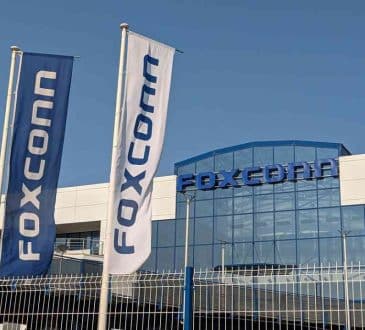The Success Metric For Today’s CEOs Should Be Vision Rather Than Experience

Success requires a wide array of traits. Decisiveness, drive, and confidence are unique personality traits (and often requirements) of a thoughtful leader. Not too far behind, you’ll find qualities like reliability, agility, and adaptability. While each characteristic can help create a successful CEO, vision is what will set you apart from the rest.
Vision makes it possible to understand a company as a whole, and it enables you to adapt to sudden shifts in the marketplace with ease. You can see how and why one thing connects to the next, which can help inform everything from strategic direction to next steps.
With technology rapidly changing, the old standard of having “experience” in your given field or sector doesn’t cut it. Technology is disrupting traditional industries and has become a crucial component of almost every sector. With technology evolving this quickly, it’s impossible to predict what the business landscape may look like in the next 20 or 30 years.
If you’re not thinking about how technology is affecting your business — or what it’s doing to your customer base — you’re leaving way too much to chance. From healthcare to consumer staples, technology is changing the way we all conduct business. As a result, CEOs need a distinct and stable vision to move their organizations forward.
The New Metric for Success
The traditional way to learn about business and leadership is to go to school, learn a trade, pore over case studies, gain experience, and then come up with ideas and strategies. These basic standards and pillars are great, but the actual execution has changed.
Twenty years ago, a brand wouldn’t create its own artificial intelligence team unless, of course, it was in the technology sector. Many modern companies need AI professionals to keep up with changing demands and ensure the business is adopting proprietary technology that is not only unique to the company but also its client base.
To effectively manage this team, a CEO should be able to communicate a clear, concise vision of the future that empowers its internal departments. CEOs should encourage employees from the C-suite down to take the risks necessary to achieve success. You can’t be risk-averse if you want to compete; you need to take calculated risks and then adapt as needed.
Business pioneers extending from every point in the market — including Jeff Bezos, Bill Gates, Steve Jobs, and Richard Branson — have taken an uncalculated approach to drive their companies forward. They saw problems in their industries and created solutions that changed traditional business practices. It’s all about understanding how to use the resources available to you and positioning your organization to be at the forefront of change in your sector.
So how do you lead a company effectively in this new business paradigm using vision as your North Star? The following are often the best places to start:
- Embrace the uncharted territory.
A wave of new technology isn’t just on the horizon. Your organization likely is in the midst of a digital transformation, armed with the tools and ability to communicate directly with just about anyone in the marketplace. But change begets challenge, and you’ll often find yourself questioning how to use these technological advances and the copious amounts of data that accompanies them.
It’s not solely about how much data you can possibly gather, though. It’s about making the most of the data you have. While 84% of CEOs have voiced their concerns regarding data quality — particularly in regards to decision-making — it’s more important to think about how you consume and manage the data that’s accurate to you.
- Understand the business implications.
Thanks to technology, you have the ability to redefine your sector. Technology can assist you with virtually any problem that businesses face today, no matter where you’ve staked a claim. In fact, Boston-based agricultural technology company Indigo Ag ranked at the top of CNBC’s 2019 Disruptor 50, a list of startups changing the business world.
Leveraging technology to advance business requires foresight on your part, however. Think ahead and consider how technology will affect your organization — and do the same for your business vision. Disruption, even the smallest of shifts, can lead to unexpected changes.
- Involve out-of-the-box thinkers.
Surrounding yourself with out-of-the-box thinkers has a way of enhancing your vision. While you may have a few of these creative minds on staff, empower all employees — especially key talent — to start thinking outside of the box. The goal is to bring everyone along for the journey and encourage an exchange of ideas on how to adopt and adapt technology to your advantage.
As the ideas start flowing, take it a step further and discuss how to use technology to disrupt your own organization. If you don’t do it, somebody else will. Instead of fearing changes to the status quo, start creating your own disruption. Wouldn’t you rather be in front of the eight ball than behind it?
Vision isn’t a CEO’s only success metric. You still have to execute on that vision to see a return, which can require everything from drive and confidence to backbone and grit. While experience and passion alone won’t help you achieve your business goals, it’s important to maintain a clear vision for how you want your business to prosper and grow.
In the end, everything is a journey. CEOs, who are also entrepreneurs in their own right, should find it invigorating to take different paths to reach their target destinations successfully.
Written by Michael Cammarata.
Have you read?
# Best Countries For Business In Europe For Non-European Investors, 2019 .
# World’s Top 100 Cities To Reside In For 2019.
# The World’s Best Airlines For Business Travel In 2017.
# Best Websites For CEOs, Senior Executives, And entrepreneurs.
Add CEOWORLD magazine to your Google News feed.
Follow CEOWORLD magazine headlines on: Google News, LinkedIn, Twitter, and Facebook.
This report/news/ranking/statistics has been prepared only for general guidance on matters of interest and does not constitute professional advice. You should not act upon the information contained in this publication without obtaining specific professional advice. No representation or warranty (express or implied) is given as to the accuracy or completeness of the information contained in this publication, and, to the extent permitted by law, CEOWORLD magazine does not accept or assume any liability, responsibility or duty of care for any consequences of you or anyone else acting, or refraining to act, in reliance on the information contained in this publication or for any decision based on it.
Copyright 2024 The CEOWORLD magazine. All rights reserved. This material (and any extract from it) must not be copied, redistributed or placed on any website, without CEOWORLD magazine' prior written consent. For media queries, please contact: info@ceoworld.biz
SUBSCRIBE NEWSLETTER








